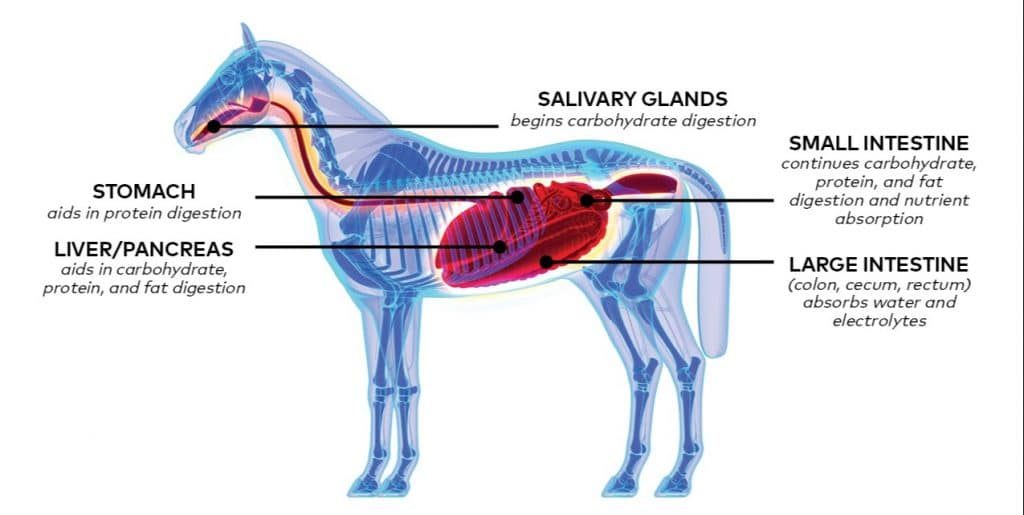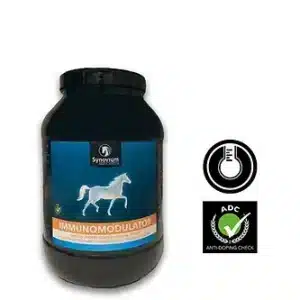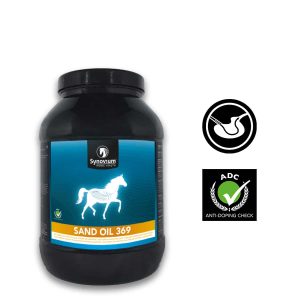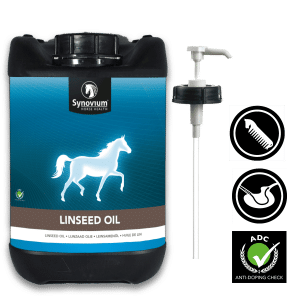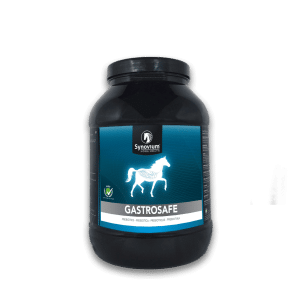Optimal Gut Health in Horses
A healthy and well-functioning digestive system is important for the horse’s overall health and well-being. Abrupt changes in the ration or high levels of starch and sugar in the diet have an effect on the function, balance and composition of the intestinal flora.
Disruption of this balance can lead to health problems and chronic diseases that affect the well-being and athletic performance of the horse.
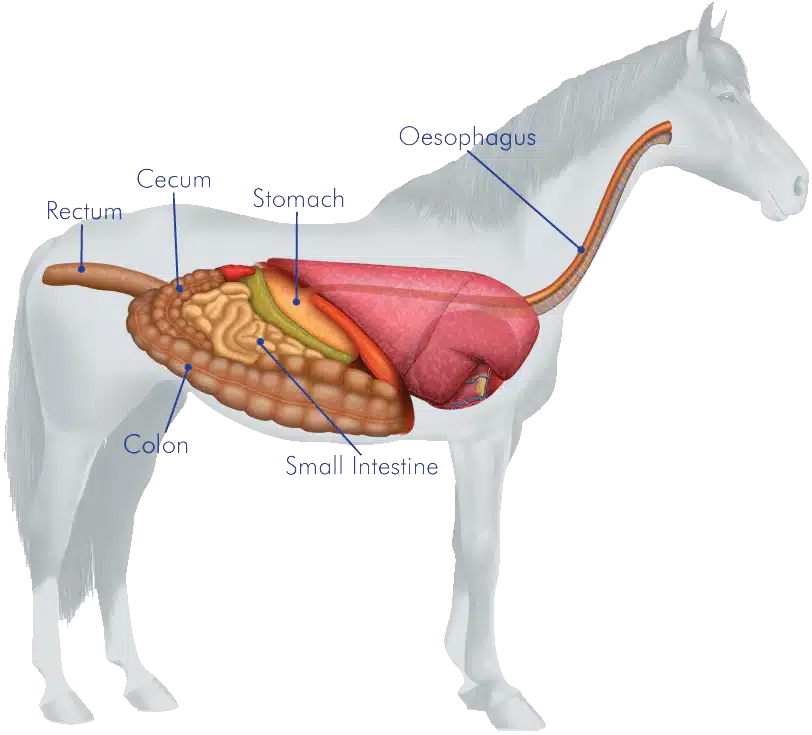
The digestive system of the horse can be divided into two parts.
In the first part of the digestive system, digestion of nutrients mainly takes place by means of enzymes.
The second part consists of the small intestine, large intestine and appendix.
By means of micro-organisms in the intestines, fiber from the diet is digested into the volatile fatty acids butyrate, acetate and propionic acid.
Volatile fatty acids provide 60 to 70% of the energy required for metabolic processes in the horses body. As a result, the energy supply of the horse mainly depends on the fermentation of fibers in the intestines.
The intestines contain different types of micro-organisms that perform different functions, such as bacteria, fungi, archaea, protozoa and bacteriophages.
The composition of the intestinal flora has an effect on the digestion of volatile fatty acids and the health of the horse.
In addition, the composition of the intestinal flora also has an effect on the horse’s immune system and dysbiosis can lead to reduced immune system function.
The fermentation of fibers from roughage and the production of volatile fatty acids stimulates micro-organisms that have a positive effect on the horses intestinal function and intestinal health.

Due to abrupt changes in the diet or if the feed contains a high amount of sugar and starch, the balance in the intestines can be disturbed.
The digestive system of the horse is not able to digest high amounts of starch. When the amount of starch in the diet exceeds the requirement, part of the starch passes the enzymatic digestion and ends up in the intestines, causing fermentation of the undigested starch.
This has an effect on the effectiveness of the fiber digestion and overall gut health in horses.
Changes in the activity and composition of the microorganisms in the gut are measured by pH, lactic acid and volatile fatty acids in manure.
Studies show that the fermentation of starch in the gut results in the production of lactic acid leading to a drop in pH value. In addition, an acidic environment, due to starch fermentation, has also been shown to be associated with the growth of lactic acid-producing bacteria in the gut, such as the bacterial species Streptococcus.
Research shows that disturbances in the balance of the intestinal flora, leading to low pH and the production of lactic acid, result in an increased risk of colic and laminitis in horses.

In addition, changes in the intestinal flora also have an effect on the horse’s behavior.
Research shows that changes in the gut flora resulting from a diet high in starch results in an increase in reactive behavior. In contrast to horses whose rations contain a high amount of fiber and the gut flora has a different composition, these horses show calmer behavior.
In short, a well-functioning intestinal flora is essential. That is why it is important to provide your horse with a balanced diet.
In addition, supplements such as Gastrosafe, can be used to support the intestines and a healthy intestinal flora. Providing essential support for optimal gut health in horses.
-
- Select options This product has multiple variants. The options may be chosen on the product page
£48.99 – £120.00 -
- Select options This product has multiple variants. The options may be chosen on the product page
£57.00 – £138.00 -
- Select options This product has multiple variants. The options may be chosen on the product page
£51.00 -
- Select options This product has multiple variants. The options may be chosen on the product page
£52.00 – £137.00


